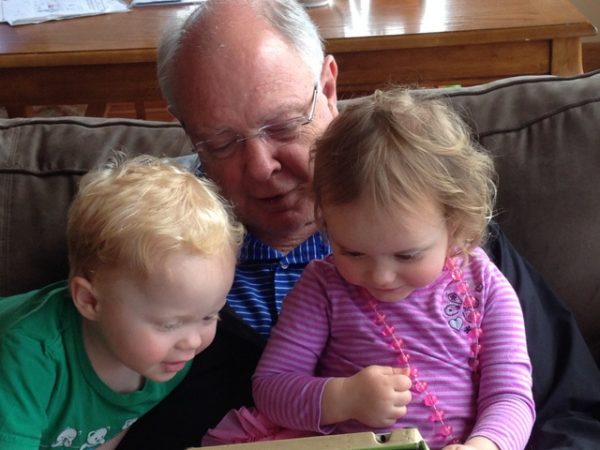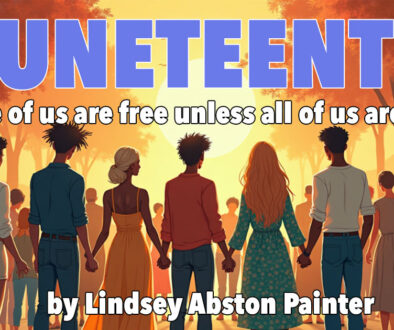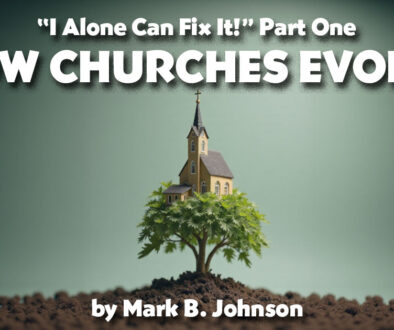Sermons Don’t Help
by Jack Hoehn | February 27, 2020 |
There is a problem with survival. The older you get, the longer you live, the fewer friends you have left. Because they keep dying off on you.
I am a medical doctor and in my youthful practice I worked in constant life and death situations in mission hospitals in Africa[1]. People often came to hospitals in extremis, or the last stages of life. And in most of the non-developed world children are at risk of death before they have the size and ability to care for themselves in contexts of malaria, poor sanitation, poor water, poverty.
So, for many years as a doctor I fought for people’s lives and sometimes lost the battles. I saw older people (most people were older than me back then) and children die. Mostly this just made me fight harder. Every child saved, every life prolonged of older people was the reason we kept fighting. The five children saved were worth the pain of losing the one we couldn’t save. (Even one child saved would have been worth five not saved, I guess.)
In any case, it was a good fight and I am happy I was able to do it. Our served populations appreciated what we in the Adventist Mission were trying to do. More than once relatives would shake my hand as they left with the body of a family member, saying, “Thank you, doctor, we knew he/she was dying, but thank you for trying.” So, it is not that I am unfamiliar with death.
But now, I’m no longer fighting death; I’m living with the dying. There are fewer people older than me and more people younger than me. I have more funerals to go to. I’ve had more relatives and friends to watch as cancers and heart attacks and overwhelming infections fulfill the mandate of being locked out of Eden. Deanne (she is so good at this) and I now frequently support visit, call, pray for, and take food to families. There is a former beloved pastor with brain cancer, a younger friend with lung cancer, a funeral of a neighbor from kidney cancer, someone’s “ex” with advancing dementia, and including widows or widowers in our social plans. It’s just the way life is now.
We also watch the outpouring of love and care by so many other people. Sometimes the hospital rooms are crowded, the casseroles more than they can eat, the many shifts shared, the errands run, the lattes brought, the money donated, the hours spent. Truly the family of God is a family, and truly they do care for each other. It warms our hearts to watch you do Jesus-care for each other.
This week Deanne was in a hospital room with a patient recently placed on hospice care. They had a nice quiet time; she helped him with his supper. Then she watched as a reverend from another church came into the room and earnestly spoke to the patient of how God was still in control, and about the resurrection, and about our assurance in Christ, quoted a few texts and then ended his mini-sermon with a loud prayer. Deanne watched the patient who had been happily eating supper begin to shake and cry as the sermonizing went on. She came home that night worried about what she had watched.
The next day (with family permission) she put a sign on the door:
Smiles, Laughter, Happy Recollections, Appreciation:
Welcome !!!(Reminders of Impending Separation. Admonitions, Sadness, Tears: Not Helpful. Please Leave at Home)
After I heard her story and thought of my own experiences, I wrote the following little reminder and posted on Facebook in hopes that it might help other Christian friends who want to help those at the end of life. The post got many likes, positive comments, and “shares” and Adventist Today’s managing director read it and asked that I share the suggestions with you. (From my Facebook February 19, 2020):
Christian Visits to the Sick
We sat by the bed of a Sweet Patient who has just been placed into Hospice care. The fight is now over, the battle is done, and kindness and comfort shall rule. And you bustled into the room on what must have been a ministry visit, burdened with a load of beliefs. You unloaded a short but well-practiced sermonette on the shortness of life, and that God is in control, and that Sweet Patient had nothing to fear—when there was no fear in the room before you walked in.
Were you bringing your own concerns with you? Were you reassuring yourself of the doctrines that to you make sense of life and of death? Was your little sermon on trusting God who you are sure is in control, even when no control is visible, for your own soul? Was your volunteered prayer needed to bring a blessing previously denied Sweet Patient?
We suspect that Sweet Patient held no doubts about any points of doctrine, as you rehearsed them. We also suspect you felt you could bring Sweet Patient some comfort by shoring up their beliefs with your stout affirmations. But we noticed there were no tears before you came to the room, but there were tears as you testified on. Perhaps Sweet Patient was weeping with the comfort of doctrinal confirmation. But perhaps the patient wept because it reminded them that in the past, they too had made the same error you seemed to be making now.
To not offer sick and dying people a dose of opinions defending the God who at the moment did not appear to be defending the patient. And thinking theology matters at the end, when only love matters in the end.
We have a suggestion, dear Christian Visitor. Can we ask you please, when you visit the sick, be in the room, and not in the pulpit? Offer to fill a cup with water, straighten a pillow, ask the nurse to come and change the sheets. Tell a joke. Bring a candy. Tell about the sunshine, the daffodils, and the grandchildren. Just don’t come in with an unnecessary defense of God or an unhelpful rehearsal of theology. Come in to visit, not to preach. If the sick ask you questions, of course answer them or say, “I don’t know, but I do love you.” Pray if you are asked to, but otherwise pray after you leave. Your Jesus didn’t say[2], I was sick and you came to preach to me. So that is why I am writing to you, dear Christian friend, to ask you to bring love, kindness, and your warm hand or gentle kiss, and please leave your theology in the pulpit.
Jack.
FOOTNOTES:
[1] Maluti Adventist Hospital, Mapoteng, Lesotho 1973-1977; Mwami Adventist Hospital, Chipata, Zambia 1977-1986,
[2] Matthew 25:36.
 Jack Hoehn is a frequent contributor to both the print and online versions of Adventist Today. He has served on the Adventist Today Foundation board since 2012. He and his wife Deanne live in Walla Walla, Washington. He has a BA in Religion from Pacific Union College, and an MD from Loma Linda University. He was a licensed minister of the Adventist church for 13 years when serving as a missionary physician in Africa.
Jack Hoehn is a frequent contributor to both the print and online versions of Adventist Today. He has served on the Adventist Today Foundation board since 2012. He and his wife Deanne live in Walla Walla, Washington. He has a BA in Religion from Pacific Union College, and an MD from Loma Linda University. He was a licensed minister of the Adventist church for 13 years when serving as a missionary physician in Africa.




